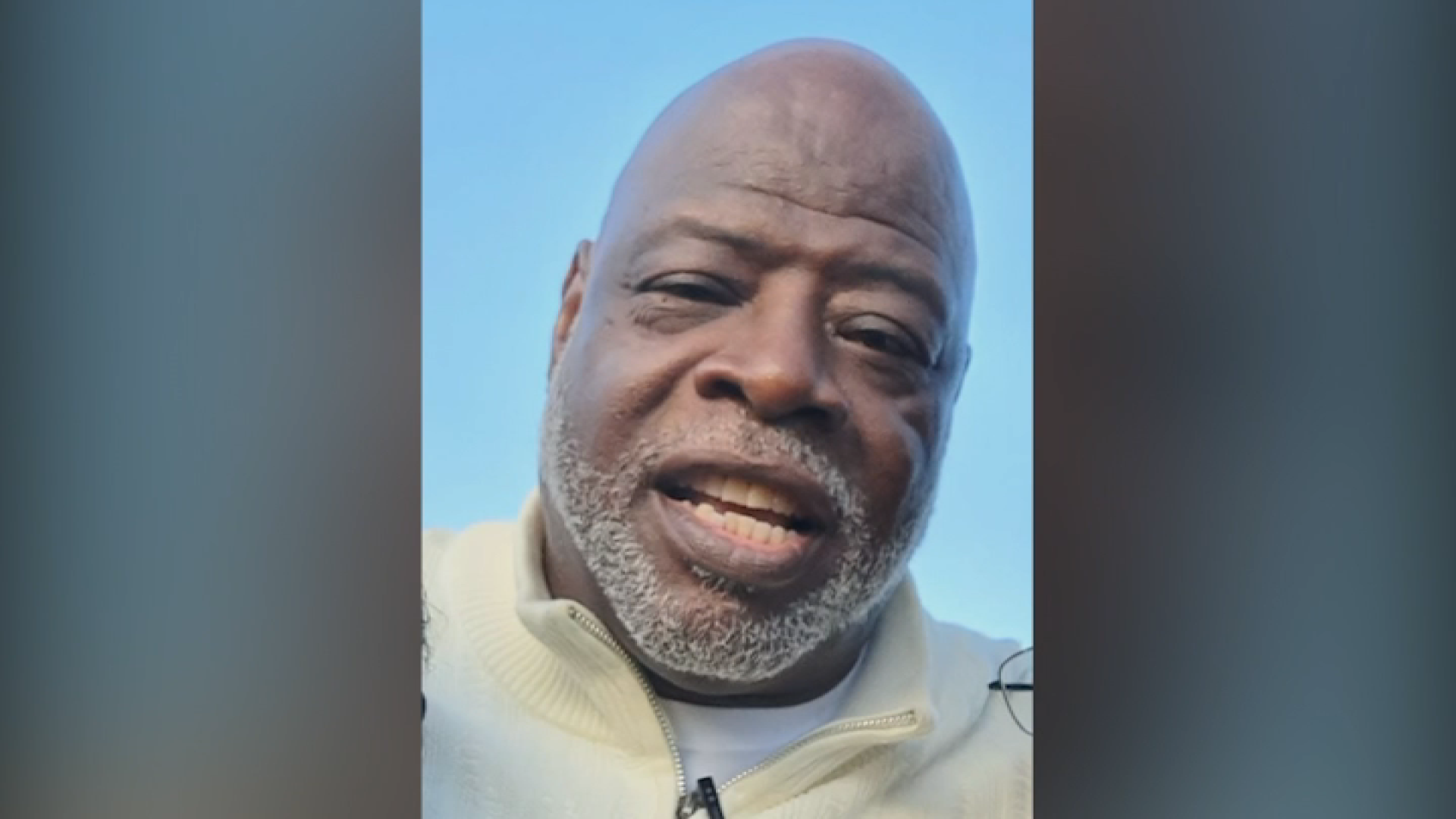Maryland Bus Driver's Heroic Act Saves Passengers' Lives
Maryland Bus Driver's Heroic Act: Saving Lives Amid Heart Attack
Introduction: A Moment of Courage and Loss
Imagine being behind the wheel, responsible for the safety of dozens of lives, when suddenly, your own body betrays you. That's the scenario Ruize Bell, a Maryland Ride On bus driver, faced on a Wednesday morning in Gaithersburg. In a testament to his unwavering dedication, Mr. Bell, while suffering a fatal heart attack, managed to bring the bus to a safe stop, saving all his passengers. This is a story of a local hero, a father of ten, and a reminder that even in our everyday lives, extraordinary acts of courage can emerge.
Remembering Ruize Bell: A Gentle Giant
Ruize Bell wasn't just a bus driver; he was a beloved member of his community and a devoted family man. His colleagues and loved ones remember him as a gentle soul with an infectious spirit, a man who always put others first. Jennifer Beckwith, a fellow transit bus operator, described him as a "superman," highlighting his heroic nature both on and off the job. What does it say about a person when their first instinct, even in their final moments, is to protect others?
A Father of Ten: Family Above All
Above all else, Ruize Bell was a family man. He leaves behind ten children, a testament to the love and devotion he poured into his family. His loss is undoubtedly felt deeply by his family, friends, and the entire Gaithersburg community. We can only imagine the immense void his absence will create. How can we honor his memory and support his family during this difficult time?
A "Superman" to Colleagues: Respect and Admiration
The accolades from his colleagues speak volumes about the kind of man Ruize Bell was. Described as a "hero" and a "superman," he clearly earned the respect and admiration of those he worked with. Yader Mendez, a coworker, emphasized that heroes are few and far between, placing Bell in a rare and esteemed category. Is there a higher honor than being recognized as a hero by your peers?
The Incident: A Bus Driver's Last Stand
The incident occurred on Interstate 355, a busy thoroughfare. Ruize Bell was driving south when he suffered the heart attack. Despite the sudden and debilitating nature of the attack, he remained focused on the safety of his passengers. His ability to maintain composure and bring the bus to a controlled stop is nothing short of remarkable. It's a testament to his training, his dedication, and his innate sense of responsibility.
Interstate 355: A Critical Route
Interstate 355 is a major transportation artery in Montgomery County, Maryland. The fact that the incident occurred on such a busy road underscores the potential for disaster and further highlights the importance of Ruize Bell's actions. What could have happened if he hadn't been able to react so quickly and decisively?
The Immediate Aftermath: Passengers Safe
Thanks to Ruize Bell's heroic efforts, all the passengers on board the bus were safe. This is the ultimate measure of his success and a testament to his selflessness. While we mourn his loss, we can also find solace in the fact that his actions prevented what could have been a much greater tragedy. Can we truly grasp the impact of his sacrifice?
Official Recognition: Condolences and Praise
Montgomery County Executive Marc Elrich extended his condolences to Ruize Bell's loved ones and praised him for his bravery and quick thinking. Elrich noted that Bell's "calm under pressure" spoke volumes about his character. This official recognition acknowledges the significance of Bell's actions and underscores the respect he earned from the community's leadership.
Montgomery County's Loss: A Community Mourns
The loss of Ruize Bell is not just a personal tragedy; it's a loss for the entire Montgomery County community. He was a public servant, a dedicated employee, and a caring individual who touched the lives of many. How can we, as a community, support each other during this time of grief and remembrance?
The Importance of Public Servants: Unsung Heroes
This tragic event serves as a reminder of the important role that public servants play in our society. Bus drivers, transit operators, and other essential workers often go unnoticed, yet they are responsible for our safety and well-being. Let us take this opportunity to appreciate their dedication and acknowledge their contributions. Are we truly aware of the sacrifices they make?
Heart Health Awareness: Prevention and Education
While we celebrate Ruize Bell's heroism, it's also important to acknowledge the underlying cause of his death: a heart attack. This tragedy underscores the importance of heart health awareness and the need for prevention and education. What steps can we take to protect our own hearts and the hearts of our loved ones?
Risk Factors: Knowing Your Vulnerabilities
Understanding the risk factors for heart disease is crucial for prevention. Factors such as high blood pressure, high cholesterol, smoking, obesity, and family history can all increase your risk. Knowing your vulnerabilities allows you to take proactive steps to mitigate them. Do you know your heart health numbers?
Healthy Lifestyle Choices: Diet and Exercise
Adopting a healthy lifestyle is one of the best ways to prevent heart disease. This includes maintaining a balanced diet, engaging in regular physical activity, and avoiding smoking. Small changes can make a big difference in the long run. Are you willing to commit to a healthier lifestyle?
Regular Checkups: Early Detection is Key
Regular checkups with your doctor are essential for early detection and treatment of heart disease. These checkups can help identify risk factors and detect potential problems before they become serious. Don't wait until you experience symptoms; be proactive about your health. When was your last checkup?
Honoring Ruize Bell's Legacy: How to Help
In the wake of this tragedy, many people are asking how they can help. Supporting Ruize Bell's family is one way to honor his memory and demonstrate our collective compassion. Consider donating to a memorial fund or offering support to his loved ones. Let's rally together to show them that they are not alone.
Community Support: A Time for Togetherness
This is a time for the Gaithersburg community to come together and support each other. Attending memorial services, offering condolences to the family, and simply being there for one another can make a significant difference. How can we foster a sense of unity and compassion during this difficult time?
Beyond Donations: Acts of Kindness
Beyond financial contributions, small acts of kindness can also be incredibly meaningful. Offering a helping hand to a neighbor, volunteering in the community, or simply reaching out to someone who is struggling can all be powerful ways to honor Ruize Bell's legacy of kindness and service. What small act of kindness can you commit to today?
Conclusion: A Hero Remembered
Ruize Bell's story is a powerful reminder of the courage and selflessness that can be found in everyday individuals. His heroic actions saved the lives of his passengers, and his legacy will continue to inspire those who knew him and those who hear his story. He was a devoted father, a respected colleague, and a true hero. Let us remember Ruize Bell not just for his tragic passing, but for the extraordinary life he lived and the lives he saved. What a remarkable testament to the human spirit!
Frequently Asked Questions (FAQs)
Here are some frequently asked questions about the incident and related topics:
- What exactly happened on the bus?
Ruize Bell, a Ride On bus driver, suffered a fatal heart attack while driving on Interstate 355. Despite the medical emergency, he managed to safely stop the bus, preventing any harm to his passengers.
- How can I support Ruize Bell's family?
Consider donating to a memorial fund set up in his name, or reaching out to local community organizations to see how you can offer support. Even a simple message of condolence can make a difference.
- What are the main risk factors for heart attacks?
Key risk factors include high blood pressure, high cholesterol, smoking, obesity, diabetes, a family history of heart disease, and a sedentary lifestyle.
- What can I do to improve my heart health?
Adopting a healthy lifestyle, including a balanced diet, regular exercise, maintaining a healthy weight, avoiding smoking, and managing stress, can significantly improve your heart health.
- Where can I learn more about heart disease prevention?
Consult your doctor for personalized advice. You can also find valuable resources from organizations like the American Heart Association and the National Heart, Lung, and Blood Institute.

